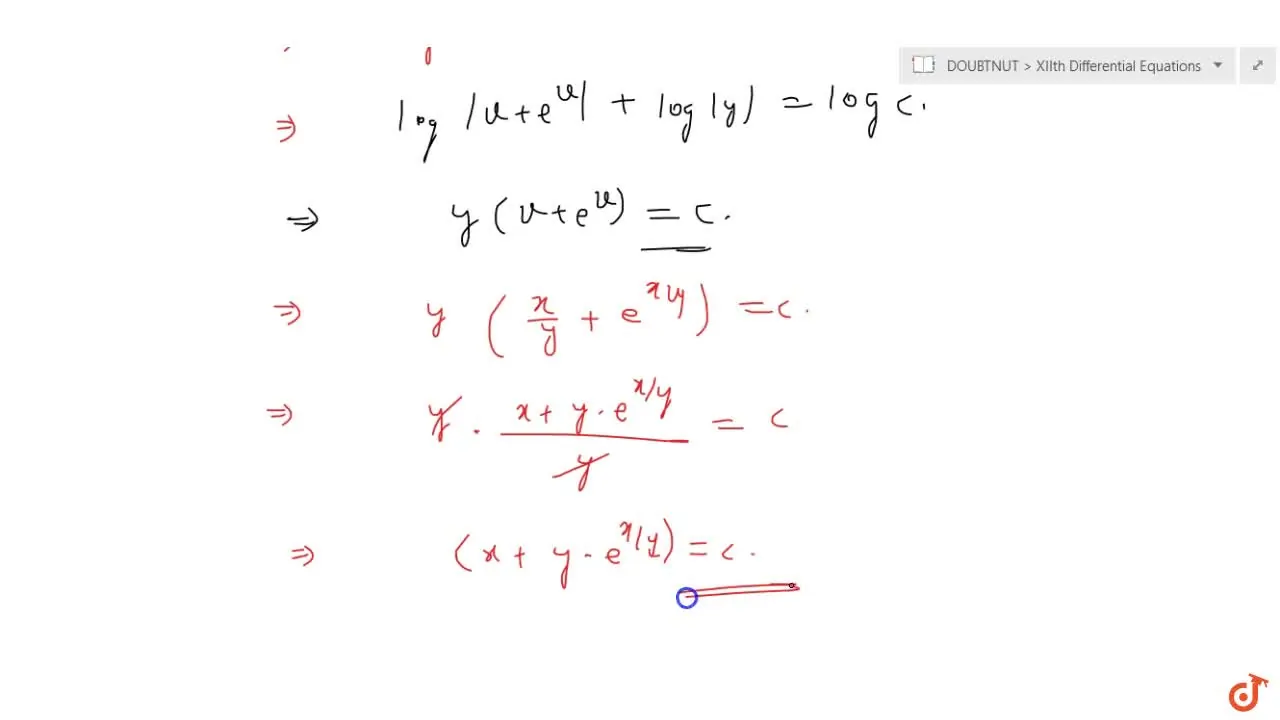Solve the following differential equation: (1+ex/y)dx+ex/y(1−xy)dy=0
Video Solution
Text Solution
Given:$$ \begin{gathered} \left(1+e^{\frac{x}{y}}\right) d x=\left(\frac{x}{y}-1\right) e^{\frac{x}{y}} d y \\ \frac{d x}{d y}=\frac{\left(\frac{x}{y}-1\right) e^{\frac{x}{y}}}{\left(1 +e^\frac{x}{y}\right)}=f\left(\frac{x}{y}\right) \end{gathered} $$ hence, It is a homogeneous equation, $$Put,x=v y$$ $$And, \frac{d x}{d y}=v+y \frac{d v}{d y}$$ $$v+y \frac{d v}{d y}=\frac{(v-1) e^{v}}{1+e^{v}}$$ $$\int \frac{1+e^{v}}{e^{v}+v} d v=-\int \frac{d y}{y}$$ $$\log _{e}\left|e^{v}+v\right|=-\log _{e}|y|+\log _{c} \mathrm{C}$$ $$\log _{e}\left|\left(e^{v}+v\right) y\right|=\log _{e} C$$ $$\left(e^{v}+v\right) y=C=A$$ $$\left(e^{\frac{x}{y}}+\frac{x}{y}\right) y=A$$ This is the required general solution
|
Updated on:21/07/2023
Related Playlists
Similar Questions
Solve the following differential equation: y(1+ex)dy=(y+1)exdx
View SolutionSolve the following differential equation:dydx=(ex+1)y
View SolutionSolve the following differential equations: dydx+1=ex+y
View SolutionSolve the differential equation: dydx+1=ex+y
View SolutionSolve the differential equation: dydx+y=e−2x
View SolutionSolve the following differential equation.
dydx=ex+yView SolutionSolve the following differential equation:
(1+eyx)dy+eyx(1−yx)dx=0(x≠0)View SolutionSolve the following differential equations: (x+y+1)dydx=1
View SolutionSolve the following differential equation dydx=ex+y−1.
View SolutionSolve the following differential equations :
dydx=1+ex−y.View Solution


